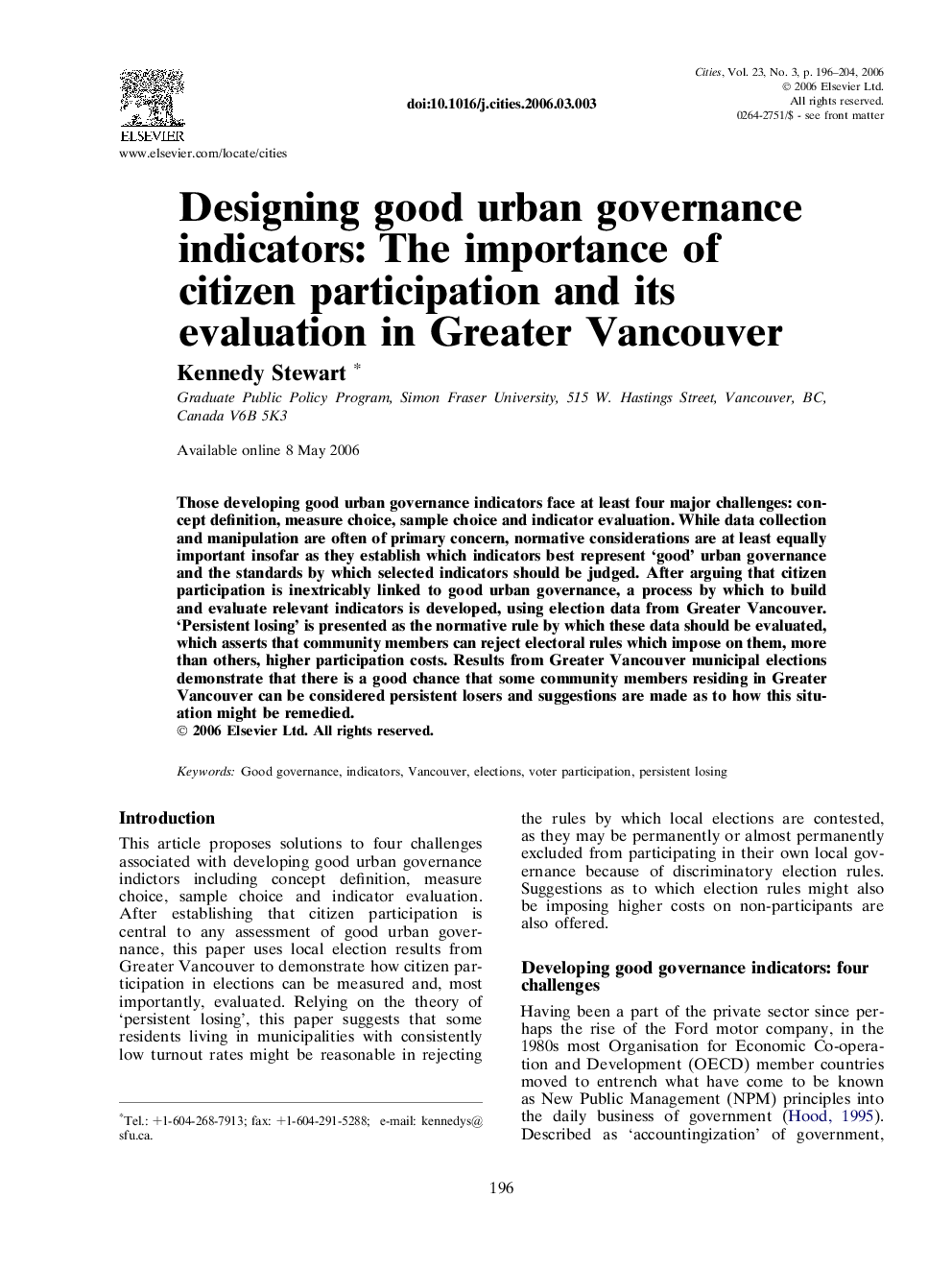| Article ID | Journal | Published Year | Pages | File Type |
|---|---|---|---|---|
| 1009045 | Cities | 2006 | 9 Pages |
Those developing good urban governance indicators face at least four major challenges: concept definition, measure choice, sample choice and indicator evaluation. While data collection and manipulation are often of primary concern, normative considerations are at least equally important insofar as they establish which indicators best represent ‘good’ urban governance and the standards by which selected indicators should be judged. After arguing that citizen participation is inextricably linked to good urban governance, a process by which to build and evaluate relevant indicators is developed, using election data from Greater Vancouver. ‘Persistent losing’ is presented as the normative rule by which these data should be evaluated, which asserts that community members can reject electoral rules which impose on them, more than others, higher participation costs. Results from Greater Vancouver municipal elections demonstrate that there is a good chance that some community members residing in Greater Vancouver can be considered persistent losers and suggestions are made as to how this situation might be remedied.
